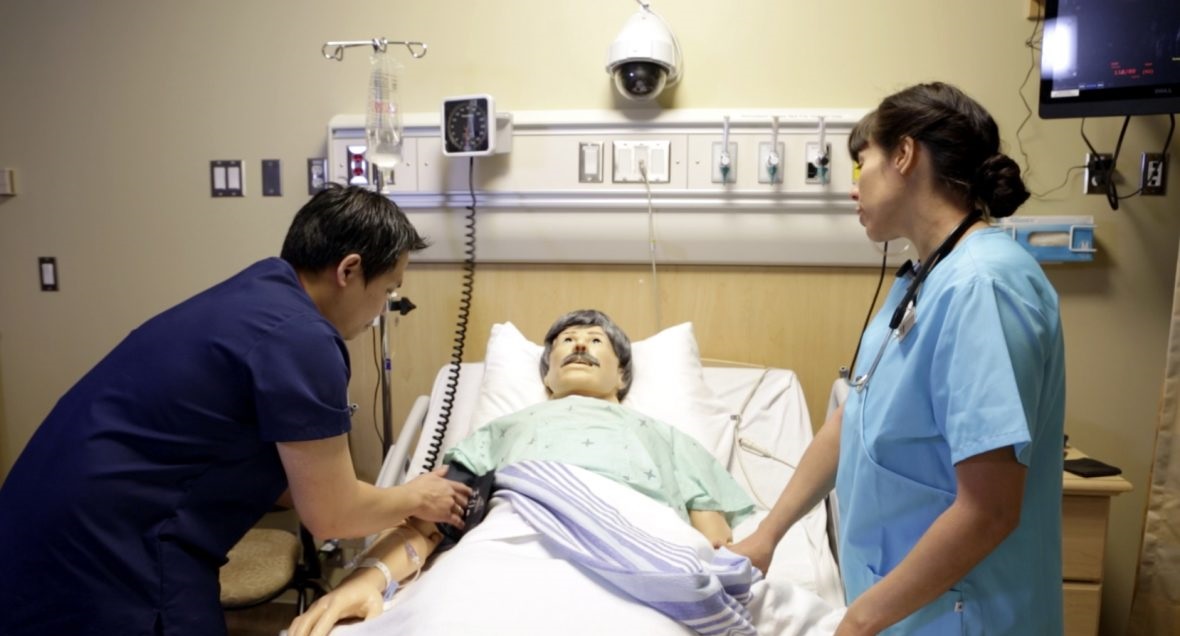For the health care professional, patient outcomes are one of the most important measures of success. High quality clinical skills training is a key component for assuring that residents and fellows are comprehensively prepared and educated, and more and more, the aspects in which technology is used to aid in this training grows by leaps and bounds.
When IVS CEO Kevin Marti has talked with the health care community, the message he's received has been clear. "Our health care clients are consistently asking for more ways to capture data surrounding education programs, where data can be quantified to ensure that training and safety goals are being met."
For the Stroke Center at Texas Women's University (TWU) in Dallas, this started with video capture using IVS's VALT (Video Audio Learning Tool). TWU used the video capture software to assist in the training of their graduate-level speech pathology students, allowing them to observe live sessions from any of the Stroke Center's thirteen rooms. According to their clinical supervisor, Alisa Woods, having full sessions recorded and available remotely and for review at any time has been far superior to requiring trainers be physically present with every training clinician throughout an entire session.
This outcome and others like it are a part of the vision that Kevin Marti had for IVS being able to improve patient outcomes with video technology. Video's impact could be incredible substantial, he noted, adding "Next level video technologies can not only improve training and continuing education programs, but actually shrink time and distance when it comes to delivering outstanding patient experiences."
One particularly intriguing use of the VALT software is in simulations programs.
Replicating the complexities of the health care environment is a learning strategy that immerses the student. It enables them to build problem-solving skills attuned to genuine clinical problems, to incorporate clinical reasoning, and be faced with the pressure of real-time decision-making. Simulations create a dynamic learning experience which contributes to an excellence in practice for the student in health care.
Shelley Jeske, the manage of Mount Royal University's Simulation Learning Centre in the School of Nursing, was emphatic about VALT's value in simulations.
"The way we use it at Mount Royal University is to capture students in particular health care scenarios and have them practicing as they would in a clinical environment," she said. "VALT then captures those scenarios and we are able to play the scenarios back for the students in order for them to learn from those situations. It's incredible to see the light bulbs go on when they can really delve into the learning that has occurred through offering a system such as this."
To Marti, this is a great example of the kinds of best practices that need to be implemented more often in the health care industry. What is needed, Marti noted, is "simulation programs that go beyond basic procedural training situations, and extend into aspects of leadership, patient safety, and improving the overall patient experience." According to Marti, this is the best way to continually improve the health care industry and create improved outcomes for patients, both in their experiences and in their health and safety.
This focus on patient experience and safety is important to Marti. As an industry, for Marti, a culture of accountability is important in health care. "Every single patient interaction needs to be treated with respect and personal accountability. Patients are customers, not numbers."
Improving patient outcomes is an inevitable outcome from having highly skilled, well-trained health professionals. The video technology offered by VALT is an extremely effective tool for providing a recording solution for clinical skills training as well as solving the challenges needed for simulation as a training tool. VALT is being used in an ever-growing list of medical education institutions, in numerous disciplines, all unified in the belief that the video and audio capture technology VALT offers is helping them produce the best health professionals they can.
If improving patient outcomes is important to you and your organization, be sure to contact IVS with any questions you may have and to learn more.
Click the link below to find out how the right audio/video capture solution enhances healthcare training and higher education.








